To gain weight safely, users need to carefully select high-calorie foods from natural sources that are rich in nutritional value, avoiding the overuse of fast food or pre-processed foods. This article will guide you on how to build a diet and use high-calorie foods in a reasonable and scientific way.
What are High-Calorie Foods and Why are They Necessary?
High-calorie foods are types of food that contain a lot of energy per serving or per 100g. They typically have a high proportion of thermogenic macronutrients such as carbohydrates, fats, and some protein. Typical examples include sweetened condensed milk, dried fruits, chicken eggs, olive oil, white rice, cheese, etc. These are all common ingredients in weight gain diets.
Calories are units of energy that the body uses to sustain life and activity. Adults typically need 2,000–2,500 calories per day. If your calorie intake is lower than your expenditure, you will lose weight. Conversely, if you are underweight, need to build muscle, or are recovering after surgery, consuming high-calorie foods is essential.
It’s important not to confuse beneficial high-calorie foods with harmful high-calorie fast food. Foods with high nutritional value for natural weight gain, such as whole milk, whole grains, and sweet potatoes, should be prioritized. Avoid overusing mildly addictive items like fast food, as they can easily increase visceral fat, affect insulin, and are not good for long-term blood sugar levels.
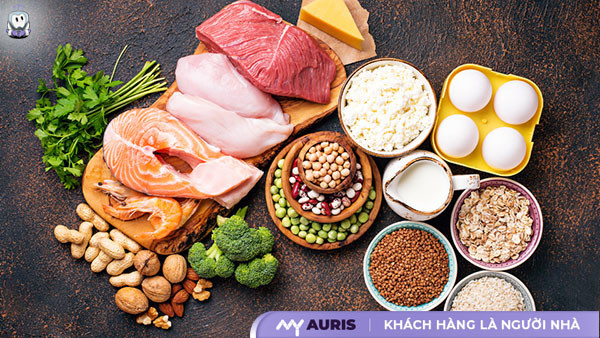
Top 20 Healthy High-Calorie Foods
Reasonable supplementation of high-calorie foods helps underweight individuals gain weight, gym-goers recover muscles, and those with low energy maintain a stable physique. Below are 20 types of high-calorie foods with high nutritional value, easy to find, and suitable for a variety of daily diets.
Peanut Butter
Before discovering peanut butter, many thin people often struggled to find high-calorie foods that were both easy to use and nutritious. After adding peanut butter to their diet, calorie intake significantly increased without needing to increase meal volume. At approximately 588 kcal/100g, it is an ideal high-calorie food, suitable for both main meals and snacks. The fat in peanut butter is largely unsaturated fat, which helps boost energy without negatively impacting cardiovascular health if consumed appropriately.
Practical application is quite simple. You can eat 1–2 tablespoons of peanut butter daily, equivalent to about 180–200 kcal. You can spread it on sandwich bread, mix it with oatmeal, or eat it directly as a quick snack. For bodybuilders, combining peanut butter with bananas or protein shakes helps increase carbohydrates, protein, and healthy fats.
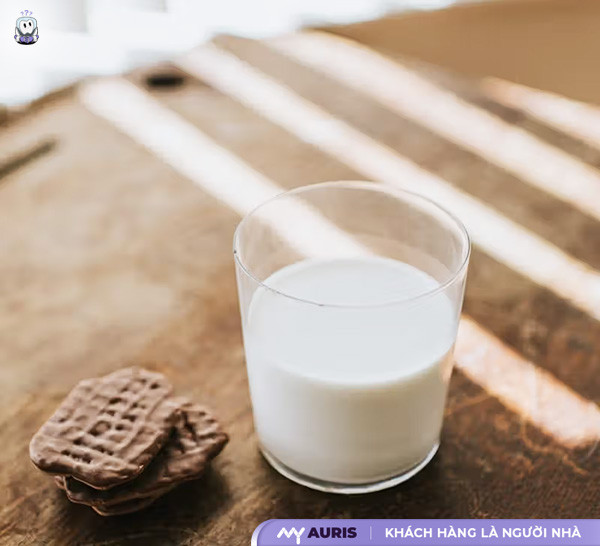
Whole Milk
Every 100ml of whole milk contains approximately 61–70 kcal and provides sufficient protein, fat, and many minerals such as calcium, vitamins A, and D. Specifically, the fat in whole milk aids in the absorption of fat-soluble vitamins and increases the energy density of meals.
Whole milk can be used quite flexibly. Individuals aiming for weight gain can drink 2–3 glasses per day in the morning, evening, or after workouts. Combining milk with whole grains, dried fruits, or oatmeal will create an energy-rich meal suitable for children, adults, gym-goers, or underweight individuals alike.
Eggs
One chicken egg contains approximately 70–80 kcal, over 6g of protein, along with all 9 essential amino acids. Eggs also provide vitamin B12, iron, and zinc – nutrients that stimulate metabolism and support growth hormones.
You can apply this very easily. Boiled eggs, fried eggs, or scrambled eggs are the most common preparations. For main meals, you can eat 2–3 eggs per day combined with white rice, red meat, and green vegetables to optimize calorie content and nutritional value. For snacks, boiled eggs combined with sweet potatoes or oatmeal are convenient options.
Oats
Oats provide approximately 389 kcal per 100g, belonging to the group of high-calorie and complex carbohydrate foods. This means oats provide sustained energy, without causing a sudden spike in blood sugar like white rice. 100g of oats also contains about 17g of protein and 7g of healthy fats. This is a clean energy source, less likely to accumulate belly fat, and supports good digestion due to its rich fiber content.
Effective usage:
- Eat oats for breakfast or snacks, combined with whole milk, dried fruits, or peanut butter.
- Use in weekly energy-boosting meal preps.
- Can be prepared as savory oatmeal porridge with chicken or chicken eggs.
Cheese
Every 100g of cheese provides approximately 400 kcal, along with 25g of fat and 20–25g of protein, depending on the type. Thanks to its high fat content, cheese helps the body absorb calories quickly and efficiently. Moreover, cheese also provides calcium, vitamin B12, and zinc – essential minerals for bone and muscle function. This is an ideal choice for weight gain or physical recovery diets.
Effective usage:
- Add cheese to sandwiches, bread, salads, pasta, or snacks.
- Use as a topping for energy-rich meals: cheese omelets, cheese rice.
- Combine cheese slices with nutritious nuts like walnuts or whole grains.
White Rice
One cup of white rice (approximately 100g) provides about 130–150 kcal, primarily from refined carbohydrates. Although not rich in vitamins or fats, white rice has a high satiety index, is easily digestible, and pairs well with many dishes. White rice plays a crucial role in healthy weight gain diets, especially when combined with red meat, cheese, eggs, or olive oil.
Appropriate ways to eat white rice:
- Serve with protein-rich savory dishes like red meat, chicken, eggs, or fish.
- Prepare as mixed rice, fried rice, or rice rolls with cheese or peanut butter to increase calorie value.
- Combine with snacks containing sweetened condensed milk or dried fruits if you want to easily increase calorie intake.
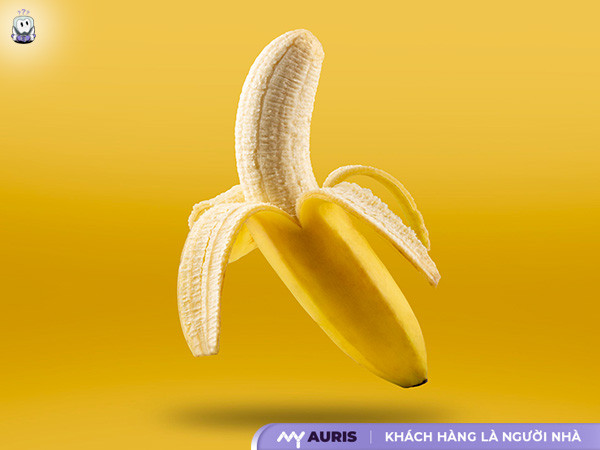
Bananas
Bananas are one of the most accessible and versatile high-calorie foods for daily meals. On average, one banana contains about 90–120 kcal, depending on its size and ripeness. Besides calories, bananas provide natural carbohydrates, potassium, vitamin B6, and a small amount of protein.
When building a weight gain diet, bananas should be included in snacks or eaten before exercise. Eating 1–2 bananas daily helps quickly boost energy, improve exercise performance, and provides simple, effective nutrition.
Sweet Potatoes
Sweet potatoes are an excellent source of complex carbohydrates for natural calorie replenishment without causing abdominal fat accumulation. Every 100g of sweet potato contains approximately 90 kcal, along with fiber, vitamins A, C, manganese, and antioxidants. This is one of the nutritious foods for underweight individuals.
In a weight gain diet, sweet potatoes should be consumed at lunch or dinner. They provide long-lasting satiety, support good digestion, and do not cause a sudden spike in insulin. You can prepare sweet potatoes by steaming, baking, or mashing them and mixing with whole milk or cheese to increase their calorie content.
Beef
Beef is a typical representative of red meat, containing a high protein content (26g/100g) and approximately 250 kcal/100g if using lean shoulder or sirloin cuts. It is an important choice in diets for thin individuals needing to build muscle and quickly replenish energy.
For those who practice bodybuilding or intensive weight gain, beef helps stimulate growth hormones and effectively develop muscles. Especially when eaten with white rice, avocado, or chicken eggs, you will create a meal with high calorie content and complete nutrients.
Beef preparation should be kept simple, such as pan-searing, grilling, making soup, or eating with whole grains. Avoid using too much oil for repeated frying, as it can create unhealthy fats, negatively affecting long-term health. However, it should not be consumed more than 3–4 times per week to avoid difficulty in controlling intake and increasing cholesterol.
Glutinous Rice
On average, 100g of glutinous rice contains about 350 kcal, higher than regular rice. This is why glutinous rice is included in many dishes such as sticky rice (xôi), banh chung, banh tet, sweet soups (chè), or sticky rice dishes (cơm nếp) – all familiar high-calorie foods in energy-rich meals.
If you’re looking for what to eat to boost calories, a breakfast of sticky rice with chicken or sticky rice with peanuts will provide a large amount of energy without needing to eat too much. However, because glutinous rice has a high glycemic index, you should control your portion size to avoid sudden blood sugar spikes, especially if you have digestive issues or diabetes.
Walnuts
Walnuts are a prime example of high-calorie nuts that contain healthy fats. 100g of walnuts contains up to 654 kcal, along with large amounts of omega-3, protein, and fiber – forming a very valuable natural weight gain nutritional source.
Walnuts are often used as part of a high-calorie snack, effectively supporting energy-boosting meal prep for bodybuilders, malnourished individuals, or those recovering from illness. Just 5–7 walnuts a day can significantly increase your calorie intake without resorting to high-calorie fast food.
Sweetened Condensed Milk
Sweetened condensed milk is a popular and accessible calorie-boosting food product. Every 100g of condensed milk can contain 321–340 kcal, with large amounts of carbohydrates, fats, and sugars – helping to quickly increase energy for the body.
This is a suitable choice for thin individuals needing rapid weight gain, malnourished children, those recovering from illness, or needing health restoration. However, because it contains a lot of sugar, this product is not suitable if you are on a diet or managing blood sugar.
Sandwich Bread
Sandwich bread is one of the most common and easiest to prepare high-calorie foods for daily meals. One slice of white sandwich bread contains about 80–100 kcal, but when combined with ingredients like cheese, eggs, cold cuts, or peanut butter, the total calorie count can reach 300–500 kcal per serving.
For healthy weight gain, you should prioritize sandwiches combined with protein-rich foods and healthy fats. For example, a breakfast consisting of 2 slices of toasted sandwich bread, served with 1 fried egg, a few slices of avocado, and a bit of cheese is an ideal choice for thin individuals looking to effectively boost calories.
Dried Fruit
Dried fruit is one of the high-calorie foods favored by gym-goers and underweight individuals due to its convenience and rich nutrients. A small serving of just about 30g can provide 100 to 150 kcal, thanks to the natural sugars concentrated during the drying process.
Unlike fresh fruit, dried fruit contains several times more carbohydrates and energy per unit of weight. Varieties such as raisins, dried bananas, dried mangoes, or dried apricots all fall into the category of high-calorie foods, suitable for natural weight gain diets.
You can use dried fruit as a high-calorie snack, combined with oatmeal, yogurt, or protein shakes to boost energy without eating excessively. Adding dried fruit to breakfast or mid-morning snacks helps quickly increase energy, especially for those with high activity levels or who need to recover physical strength.
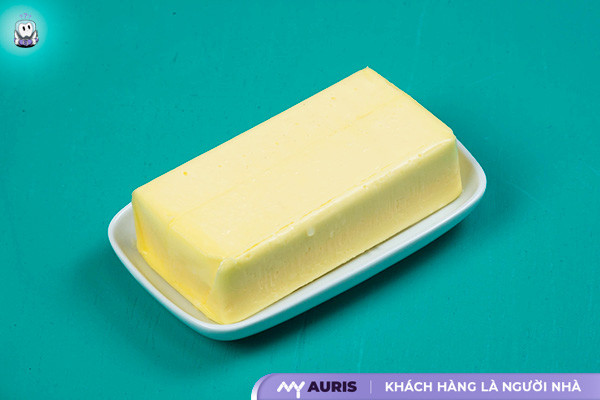
Avocado – Unsaturated Fatty Acids
Avocado is a good source of fat containing many monounsaturated fatty acids, which helps support healthy weight gain without negatively affecting cardiovascular health. 100g of avocado contains approximately 160–200 kcal, mainly from fat, but this is a beneficial type of fat if consumed correctly.
Avocado can be eaten directly, blended into smoothies with whole milk, or spread on sandwich bread as an alternative to animal butter. Each half of an average avocado provides nearly 120 kcal, making it a nutritious food for thin individuals and helping to provide long-lasting satiety.
Breakfast Cereal
Breakfast cereal is a popular food in modern breakfasts. It is a convenient, easy-to-prepare, and high-calorie option, suitable for those looking to gain weight naturally. Each 100g serving of cereal can provide 370–420 kcal, depending on its sugar and fat content. This is a high-calorie food that is easy to combine with whole milk or condensed milk to increase its nutritional value.
Dark Chocolate – High-Calorie Food Good for Heart Health and Weight Gain
Dark chocolate is not only an appealing food but also belongs to the group of high-calorie foods beneficial for health. With approximately 550–600 kcal/100g, it is a calorie-rich food that can effectively support weight gain if used appropriately. Unlike low-carb or low-calorie foods, dark chocolate contains both healthy fats and high levels of antioxidants.
The main ingredients in dark chocolate include pure cocoa, cocoa butter, sugar, and sometimes added nuts or dried fruits. The flavonoids in cocoa help improve blood circulation, support cardiovascular health, and reduce inflammation. This is a significant difference compared to typical high-calorie fast foods that often affect insulin or accumulate belly fat.
Peanuts
Peanuts are among the highest calorie nuts, belonging to the group of nutritious foods for thin individuals. Every 100g of peanuts contains approximately 567 kcal, with primarily monounsaturated fats, protein, and carbohydrates. This is a smart choice in a diet that helps gain weight naturally while still being good for heart health.
Peanuts can be used flexibly in many dishes: eaten directly, roasted with salt, ground into peanut butter, mixed with oatmeal, or blended into smoothies. This is a convenient and easy-to-incorporate food in daily meals, especially for those without time for complex preparations.
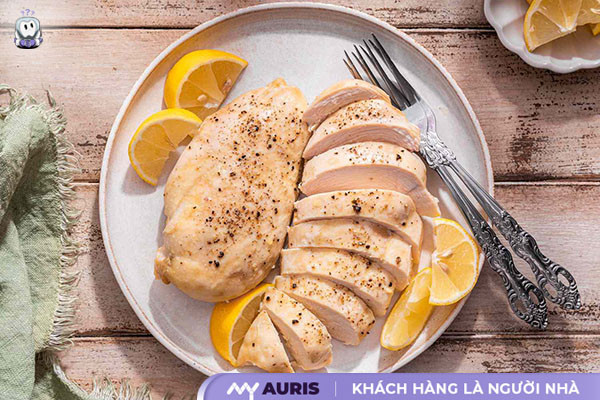
Chicken
Chicken is one of the healthy high-calorie foods, especially suitable for those looking to gain weight through calorie-rich foods. In 100g of chicken (skinless), there are approximately 239 kcal, 27g of protein, and fat content ranging from 6–14g depending on the cut. This is a nutritious food for thin individuals, as it provides quick energy, is easy to prepare, and fits well with many daily meals.
Olive Oil
Olive oil belongs to the group of foods rich in unsaturated fats, which is very suitable for healthy weight gain and muscle building diets. In 1 tablespoon (approximately 13.5g), olive oil contains up to 119 kcal, primarily from monounsaturated fatty acids, beneficial for heart health and aiding in the absorption of fat-soluble vitamins such as A, D, E, and K.
Does Eating High-Calorie Foods Lead to Weight Gain?
It’s not always true that eating a lot of calories will make you fat. Nor do all high-calorie foods necessarily harm your health. The key lies in how you use them: how much, when, and what your body’s condition is.
The body needs calories to maintain all its activities, from heart rate and respiration to movement and digestion. If the total calorie intake is greater than the daily calorie expenditure, this surplus will be stored by the body as fat.
For example: If you need 2,000 kcal/day but consume up to 2,500 kcal from calorie-rich foods like peanut butter, eggs, cheese, whole milk, or red meat, you risk gaining weight if you don’t increase your physical activity.
It’s important to distinguish between “empty calories” and “nutritional calories”:
Empty calories: usually come from high-calorie fast food, fried foods, those high in sugar and salt. This group causes rapid weight gain, easy fat accumulation, and affects blood sugar and insulin levels.
Nutritional calories: found in nuts, oats, dried fruits, protein shakes, sweet potatoes, sweetened condensed milk, providing carbohydrates, protein, healthy fats, fiber, and vitamins and minerals.
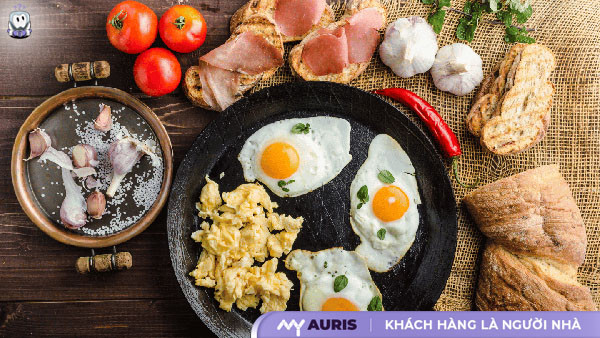
How to Build a Weight Gain Diet with High-Calorie Foods
Building an appropriate weight gain diet helps underweight individuals effectively improve their weight while maintaining nutritional value and avoiding uncontrolled excess fat accumulation:
Step 1: Determine Daily Calorie Needs
First, you need to know how many calories you need to consume daily to start gaining weight. On average, an adult looking to gain weight should consume about 300–500 kcal/day above their maintenance level. You can calculate your TDEE (Total Daily Energy Expenditure) using online tools and gradually adjust your calorie intake upwards, avoiding sudden increases.
Step 2: Prioritize High-Calorie but Healthy Foods
Choosing high-calorie foods that are still nutritious is a key factor. Avoid unhealthy high-calorie fast foods like fried items and sugary drinks. Instead, supplement with groups of natural high-calorie foods that are easy to incorporate into meals:
- Peanut butter: 588 kcal/100g, rich in healthy fats
- Whole milk: 61 kcal/100ml, easy to add to smoothies, cereals
- Chicken eggs: contain 6g protein/egg, easy to prepare
- Oats, glutinous rice, sweet potatoes: energy-rich carbohydrate group
- Red meat, cheese, dried fruits, whole grains
Limit low-calorie or diet foods if your goal is weight gain.
Step 3: Distribute Meals Reasonably Throughout the Day
To optimize calorie intake, divide it into 5–6 meals per day, including:
- 3 main meals: breakfast, lunch, dinner
- 2–3 snacks: mid-morning, mid-afternoon, and before bed
For example:
- Morning: Fried egg sandwich, glass of whole milk
- Snack 1: Dried fruit + sweetened condensed milk
- Lunch: White rice + beef + sweet potato + cheese
- Snack 2: Peanut butter with banana
- Evening: Sticky rice + eggs + olive oil + vegetables
- Night snack: Protein shake with whole milk
Step 4: Increase Nutrient Density in Each Meal
Each dish should contain all 3 macronutrient groups: carbs – protein – fats. Instead of eating large quantities, you can increase calorie density by:
- Using olive oil, cheese, or avocado sauce for dishes
- Adding condensed milk to smoothies or oatmeal
- Eating more whole grains, peanuts, and walnuts as snacks
These methods help you quickly boost energy and improve weight without feeling overly full.
Step 5: Monitor Progress and Adjust
After 1–2 weeks of implementation, check your weight. If you’re not gaining, increase your intake by another 200–300 kcal/day from nutritious foods for thin individuals. It’s advisable to maintain a weight gain diet for 7 days, then rotate it to create variety and make it easier to stick to.
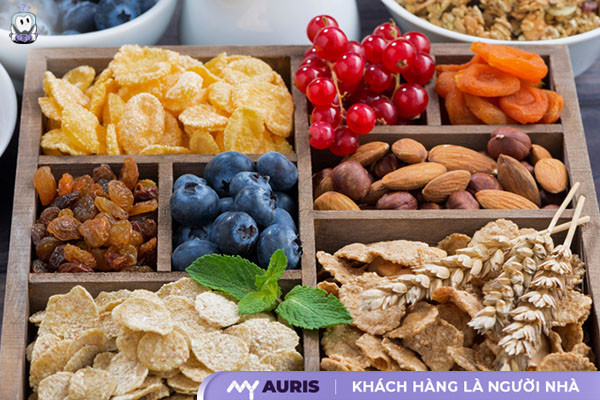
Notes on Long-Term Use of High-Calorie Foods
Prioritize natural foods such as peanut butter, whole milk, eggs, oats, nuts, sweet potatoes, or sweetened condensed milk. Avoid processed products like high-calorie fast food, oily pastries, or pre-fried foods.
Each meal should balance carbohydrates, protein, and healthy fats. For example: breakfast consisting of whole grains + whole milk + chicken eggs. Snacks should include dried fruit or a protein shake to replenish energy.
Logging your daily calorie intake helps you control weight gain and avoid exceeding your limits. Everyone has different energy needs based on age, gender, physique, and activity level.
Some people think eating at night is effective for weight gain, but in reality, it can easily lead to calorie accumulation as visceral fat. If you need to eat in the evening, choose light snacks like fresh milk, steamed sweet potatoes, or cooked oats.
Calorie-boosting supplements can provide temporary support, but they cannot replace daily meals. Build your diet based on natural nutrition, ensuring adequate vitamins, minerals, and fiber.
If you maintain a long-term weight gain diet, check your blood sugar, liver enzymes, cholesterol, and BMI every 6 months. This helps detect metabolic disorders or uncontrolled fat accumulation early.
You should not repeatedly eat only a few high-calorie dishes. It is necessary to alternate between red meat, cheese, white rice, milk, dried fruit, sandwich bread, etc., to avoid nutrient deficiencies and prevent boredom.
Each food belongs to a different food group. Following the national food pyramid helps ensure a balance between rapid energy increase and positive health impacts.





